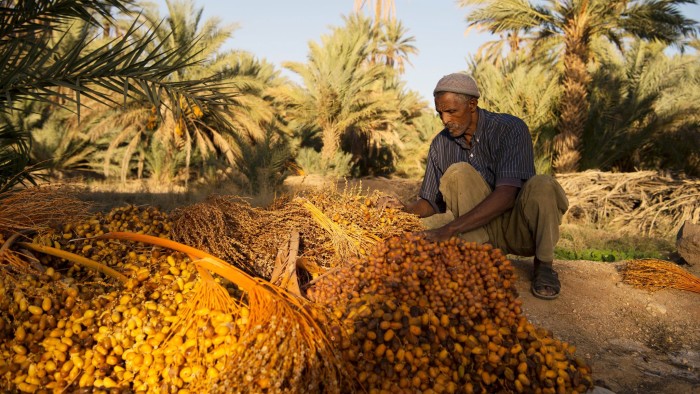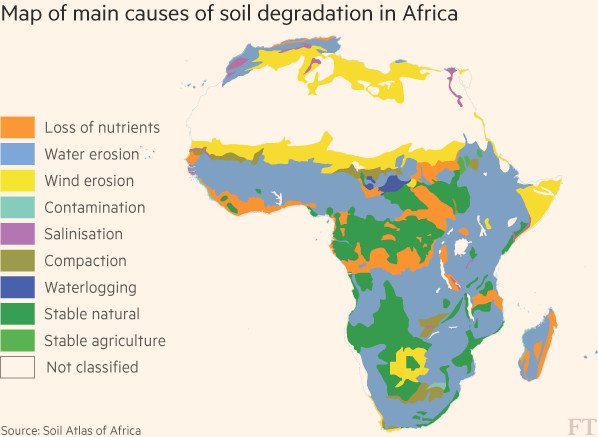Comment: How Africa can turn a food deficit to surplus

Roula Khalaf, Editor of the FT, selects her favourite stories in this weekly newsletter.
By 2050, the world will need to feed 9bn people, 2bn more than we feed today. In order to meet this demand, global food production must increase by an estimated 70 per cent in the next 30 years. Africa — which contains 65 per cent of the world’s unexploited arable land — has a key future role in delivering global food security.
Yet less than a third of Africa’s arable land is under cultivation, resulting in African food imports that total $35bn a year. To meet future demand, this equation must be reversed.
Supporting farmers and their local ecosystem is critical to unlocking the full potential of African agriculture. (I am chief executive of OCP Africa which is backed by OCP, our parent company and a phosphate supplier.)
To be successful, African farmers need a reliable supply of agricultural products that increase the efficiency of their land. They also need better education and training to boost soil fertility and access to financing to provide stability for their operations. Transport and storage infrastructure is also essential to allow access to markets and support any increased agricultural output, whether its destination is local, regional or international.
However, Africa’s fragile arable lands are at risk of further depletion in the next decade, a threat that is exacerbated by the effects of climate change. Achieving the goal of securing our global food supply must be done in a way that protects our continent’s most precious resource, our land.
A challenge is the lack of a secure and affordable supply of fertiliser that meets the needs of local soils and crops. Africa currently has the lowest fertiliser consumption rate in the world — representing only 2 per cent of global consumption despite holding 20 per cent of the world’s population by some estimates. When African farmers do use fertiliser, they pay two to six times more than the average world price.

We at OCP Africa are committed to programmes aimed at tackling soil degradation. The solution starts with soil mapping, which enables farmers to know which nutrients their specific soil needs, and then requires the application of correct and affordable supplements to boost crop yields. However, boosting soil quality is just one challenge tackled by the Initiative for the Adaptation of African Agriculture to Climate Change, one of the priorities of the Moroccan presidency of the COP 22 round of talks and actions on the global threat.
Water scarcity is the most important challenge facing agriculture in Africa. Roughly two-thirds of African lands are located in arid or semi-arid areas made even more vulnerable by climate change, while lands endowed with water often lack storage and delivery systems to effectively irrigate.
If solutions can be found to reduce water waste and improve supply, Africa could massively increase the agricultural potential of its land.
Investment in logistics and good governance is also required to ensure supplies and produce flow easily and surplus production is stored efficiently.
Private and public institutions around the world need to join efforts to provide resources and expertise, help with technology transfer and capacity building, and share best practice.
Smarter approaches to agriculture could increase the annual value of the continent’s production from $280bn to $880bn by 2030, helping boost global food supply, creating new jobs and improving other economic sectors. This challenge of delivering investment and good governance required is immense, but it is a prize worth chasing.
Karim Lotfi Senhadji is chief executive of OCP Africa
This article has been amended online since publication to make clear that it is a comment piece submitted by the writer
Comments